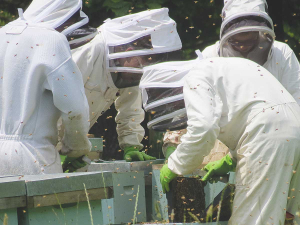According to Apiarist’s Advocate, a monthly beekeeping magazine, the industry body has drawn up a four-page public brief for the incoming government. This outlines changes NZBI wants from MPI to provide a “competent, legitimate and efficient” service to beekeepers.
Representing mainly small to mid-size beekeepers, NZBI’s Apiculture Briefing conveys its analysis of the state of the honey industry as well as offering an agenda of five key recommendations.
The briefing describes the current state of the industry as “shrinking and economically distressed” due to a “destructive combination of industry structure and politics” combined with “poor regulatory management by MPI”. It also warns that the industry faces serious biosecurity risks.
The beekeeping newsletter outlines that the brief points out how pollination is being adversely affected as hive numbers fall back.
It also explains the leading reasons for the sector’s decline: honey returns below cost of production, larger firms squeezing smaller operators, and successive failures by government and industry groups pertaining to mānuka definitions and protections.
The brief also illuminates the recent “boom to bust” of the honey industry and NZBI’s concerns around the governance structure of the American Foulbrood Pest Management Agency and its opposition to Apiculture New Zealand (ApiNZ) overseeing the agency.
“AFB incidence is rising, as are levies, with steeply declining value for levy money invested,” the briefing says. NZBI wants the new government to consider competing proposals to the 10-year Plan review that was recently lodged.
Another key concern for the industry body – which was established as an alternate national beekeeping body after the National Beekeeping Association and Federated Farmers beekeeping division merged to form ApiNZ in 2016 – is the too-frequent auditing requirements of Risk Management Plans for extracting and processing honey.
The brief says audits of plants which are not running at that time are “abusive” and “operates against the public interest”.
Meanwhile, NZBI describes biosecurity as “the big unspoken issue” of the industry. It concedes that while further incursions are inevitable, NZBI has little confidence in MPI’s biosecurity operation, which it says, “invests too little in border, and especially in vital pre-border checks, and places too much faith in its ability to respond once an incursion occurs”.

















